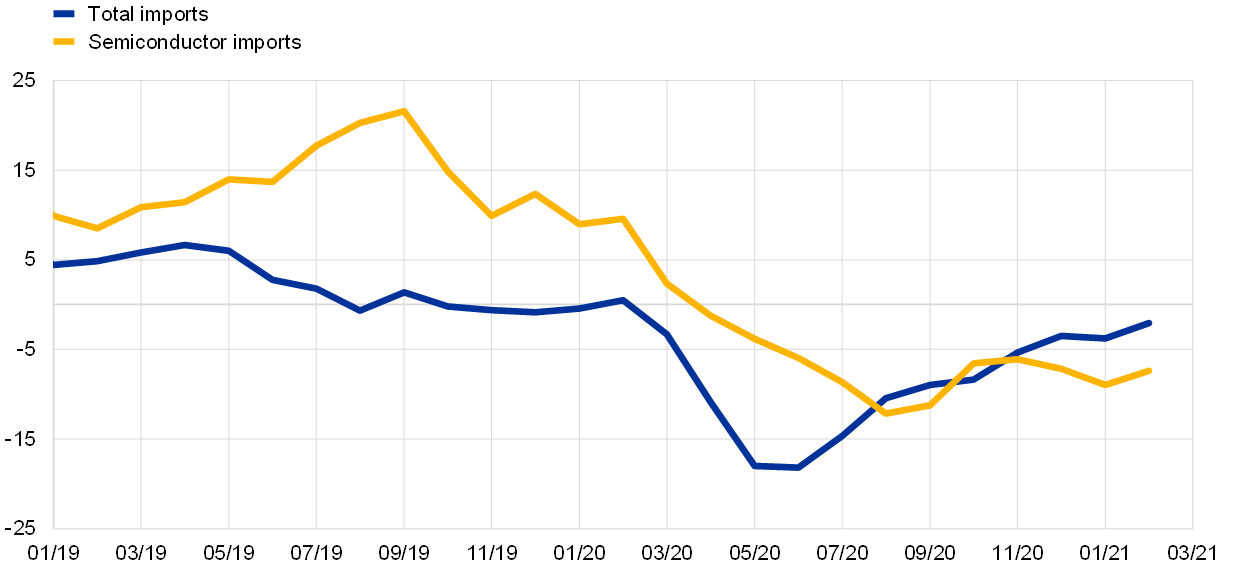In 2020, more than one trillion microchips were manufactured around the world: about 130 chips for every person on earth.
In today's digital age, the semiconductor industry plays a pivotal role in driving technological advancements and supporting various sectors, from automotive to health care. Recognizing the strategic importance of this industry, the European Commission has introduced the European Chips Act. This initiative aims to fortify Europe's position in the global semiconductor market and ensure its resilience against potential disruptions.
The Crucial Role of Semiconductors
Semiconductors, often referred to as "chips," have become the backbone of modern technology. Their applications span multiple domains, including automated vehicles, cloud infrastructure, connectivity solutions, and defense systems. With the rapid pace of digital transformation, the demand for these chips is skyrocketing. In 2020, the global production of microchips reached an impressive figure of one trillion, with Europe contributing 10% of this production volume.
A look at imports in the EU area:

Image: European Central Bank
"By 2030, 20% of the world's microchip production should be in Europe," European Commission president Ursula von der Leyen said. "Keep in mind that the world's production itself will double. This means quadrupling today's European production."
The Chips Act
The Chips Act proposes the following:
- Committing to investments in next-gen technologies
- Enabling access to design tools and pilot lines across Europe for advanced chip prototyping and testing
- Implementing certification procedures for energy-efficient and trusted chips, ensuring quality and security for vital applications
- Establishing a more favorable environment for investors looking to set up manufacturing facilities in Europe
- Supporting innovative startups, scale-ups, and small and medium-sized enterprises (SMEs) in gaining access to equity financing
- Nurturing skills, talent, and innovation within the field of microelectronics
- Developing tools to anticipate and respond to semiconductor shortages and crises, thus ensuring a secure supply
- Cultivating international partnerships with like-minded countries in the semiconductor industry
Semiconductors are essential building blocks of the technologies that will shape our future.
— European Commission (@EU_Commission) September 23, 2023
This week, the European Chips Act entered into force.
It supports investment and research facilities so 🇪🇺 can become an innovation powerhouse.
Learn more ↓
#DigitalEU
Why the Need for a European Chips Act?
Semiconductor chips are indispensable components of digital and digitized products. Their applications are vast, ranging from smartphones and vehicles to essential infrastructures in health care, energy, and industrial automation. The recent COVID-19 pandemic unveiled vulnerabilities in the global semiconductor supply chain and caused significant chip shortages. Given the critical role of chips in high-tech products, Europe is taking proactive measures to reinforce its semiconductor capabilities, ensuring competitiveness, technological leadership, and a secure supply chain.
Europe's Vision for a Resilient Chip Ecosystem
Under the leadership of Ursula von der Leyen, Europe aims to establish a comprehensive chip ecosystem. This vision encompasses not just production but also integrates Europe's renowned research, design, and testing capabilities. A significant milestone in this direction is the upcoming establishment of Europe's first gigafactory dedicated to chip production.
The European Chips Act is structured around three primary pillars:
-
Chips for Europe Initiative: In accordance with the slogan “Bridge the gap from lab to fab,” the Chips Act seeks to make the R&D ecosystem faster in terms of quick innovations that are ready-for-market and user- and industry-friendly. This initiative aims to bridge the gap between research and industrial activities, promoting the industrialization of innovative technologies by European entities. The Chips Joint Undertaking will oversee its primary implementation. With an allocation of €3.3 billion from EU funds, matched by member states' contributions, this initiative will support various activities, including the establishment of advanced pilot production lines, quantum chip development, and the creation of a Chips Fund.
-
Enhancing Production: The act seeks to boost Europe's semiconductor production, targeting a 20% global market share by 2030. It introduces a framework for Integrated Production Facilities and Open EU Foundries, which are first-of-their-kind in the Union and aim to enhance semiconductor manufacturing capacities.
-
Coordination Mechanism: A coordination mechanism has been established to strengthen collaboration between member states and the European Commission. This includes monitoring the semiconductor supply, estimating demand, and anticipating shortages. A semiconductor alert system, launched in April 2023, allows stakeholders to report disruptions in the semiconductor supply chain.
Attracting Investments and Addressing Skills Shortage
To ensure Europe's security of supply, attracting investments in advanced production facilities is crucial. The proposed regulation offers benefits to facilities recognized as Open EU foundries or Integrated Production Facilities. Additionally, the Act emphasizes the importance of addressing the skills shortage in the semiconductor sector, supporting education, training, and reskilling initiatives.
International Collaboration and Future Steps
Europe aims to establish balanced semiconductor partnerships with like-minded countries, ensuring supply continuity during crises. The European Chips Act provides a framework for such collaborations, preparing the EU for potential geopolitical changes or unforeseen challenges.
In conclusion, the European Chips Act is a testament to Europe's commitment to strengthening its position in the semiconductor industry. By fostering innovation, driving investments, and building a collaborative ecosystem, Europe is charting a path toward a resilient and technologically advanced future in the semiconductor domain.



